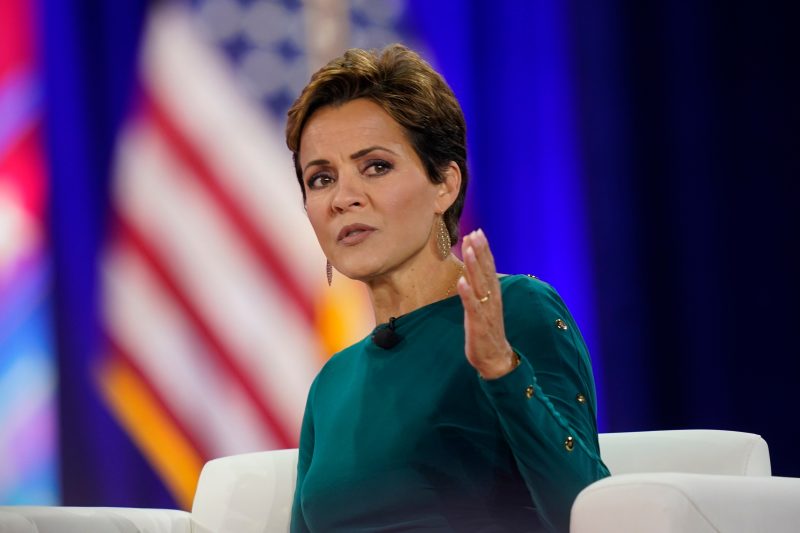
Why new Ariz. indictments are key in the fight against election subversion

There has been no shortage of brazen Republican efforts to question and overturn election results since November 2020 — efforts that despite the failure and fallout from the 2020 episode involving Donald Trump have continued. But the late-2022 attempt in Cochise County, Ariz., was subtly among the most potentially pivotal.
Now it’s leading to consequences — a pair of indictments — that could prove significant.
After some local Republican officials balked at certifying election results in President Biden’s 2020 victory, the Cochise County officials went even further in Arizona’s 2022 election. They blew through a Nov. 28, 2022, deadline to certify the county’s election results.
They did so not because they alleged something amiss in that rural county’s votes but apparently in protest over how the much more populous Maricopa County was handling its votes. (To date, there is no evidence of malfeasance in that county, either, and lawsuits have repeatedly failed.) The Cochise County Board of Supervisors ultimately relented and certified the votes on Dec. 1, but only after a court order forced it to.
The county supervisors made their play even as it was obviously legally problematic.
The only exception to the deadline in Arizona law was if votes were missing.A GOP official in another county had backed down from a similar threat while citing how he would be arrested.The supervisors struggled to find lawyers to defend themselves against civil legal action.A Republican former Maricopa County attorney quickly called for a criminal investigation.The losing Republican gubernatorial candidate, Kari Lake, responded by effectively encouraging such officials to flout the law. “We need people with courage to say, ‘Class what felony? Go ahead, go for it, arrest me,’ ” Lake said.
It turns out those officials effectively gave Lake what she wanted.
Cochise County Supervisors Peggy Judd and Terry Thomas “Tom” Crosby have now been indicted. They are each charged with a pair of Class 5 felonies for allegedly conspiring to delay the canvass of their county’s votes.
While the indictments are merely the latest in a long line over efforts to overturn elections — federally, in Michigan, in Georgia and now in Arizona — the threat of prosecution in this case could serve as a significant deterrent.
Despite the law often making such duties ministerial — in other words, not optional — refusal to certify has emerged as something of a last-ditch option to thwart election results when other efforts fail. Election deniers have waged often-successful efforts to take over local election administration. As episodes like one in 2020 in Wayne County, Mich., which includes Detroit, show, a small number of officials can have a big impact. And many state laws don’t contemplate what happens if local officials do such a thing. That can make the impulse to go rogue on election certification attractive and particularly fraught.
When the Cochise County officials were holding out, Tammy Patrick of the National Association of Election Officials told me, “It does open up this sort of playbook to play out not just in 2024, but also beyond.”
It remains to be seen how compelling the case against the officials is.
A lawyer for Crosby, Dennis Wilenchik, said there was no conspiracy to interfere in the election and that such an alleged conspiracy wouldn’t “be pursuant to any unlawful end even had it existed.” He said the fact that then-Secretary of State Katie Hobbs (D) ultimately met her own, later deadline to certify the statewide results — after the court order forced Cochise County’s hand — renders the claim of election interference “kind of nonsensical.”
(Judd did not respond to a request for comment from The Washington Post.)
Still, the indictments send a message to other local officials who might be tempted to lodge their own versions of what they may see as civil disobedience: that they could be held accountable.
In some ways, this is similar to what has happened with the alternate or “fake” electors for Trump in Michigan and Georgia who falsely declared themselves to be duly elected. Several of them have also been indicted. In those cases, too, there were plenty in their ranks who feared that what they were doing wasn’t on the up-and-up.
There are also parallels to Trump and his lawyers pressing forward with their plot even when those in their midst warned about how legally dubious it was.
Despite the expressed concerns, many of these people decided that fanciful claims of widespread voter fraud were worth going to legally problematic lengths. And now they are facing legal accountability in ways that should register for those who might try these tactics in the future.
A previous version of this article incorrectly attributed a quote about potential refusals to certify 2024 election results to Daniel I. Weiner of the Brennan Center for Justice. That quote was from Tammy Patrick, chief executive officer for programs for the National Association of Election Officials. The article has been corrected.
